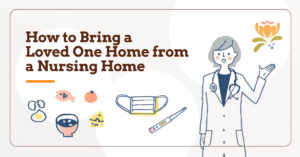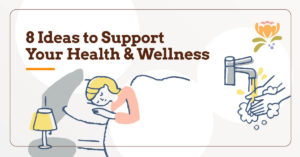
The Alzheimer’s Association research shows that at some point 6 of 10 people who live with the disease will wander. The surprise for many families is that the wandering may occur earlier in the disease than they expect. During the time when a loved one may be living at home alone and seemingly still independent. Because of its unpredictability, wandering is one of the most troubling and dangerous behaviors of Alzheimer’s disease.
What can you do to control wandering?
First, it may help you to understand what experts believe causes someone to wander:
- Excess energy
- Unfamiliar or new environment
- Hunger or thirst
- Agitation
- Pain or physical discomfort
- Searching for a loved one
- Trying to find their way “home” or to “work”
From a safety perspective, it’s best to assume your loved one will wander and prepare ahead of time for it. There are steps you can take to try to keep them safe at home:
- Maintain a regular visit schedule with their primary care physician. They can help identify health conditions that may be causing them unexpressed pain or discomfort, such as a bladder infection. Their physician can also help identify if any of their medications may have side effects that increase confusion and restlessness.
- If your loved one is really only safe leaving the home with another person, try to keep their “leaving things” out of plain site. This would include their jackets or coats, boots, and keys. Even the dog’s leash should be kept in a location they can’t access.
- Try to create a secure outside area for them to roam. For example, a courtyard in the back of your home that has no gates. The only way in or out is through the house. Let that area be their “space.”
- Purchase a Personal Wandering Locator before there is a problem. They look like a watch but have GPS technology that allows you to track a missing loved one’s location.
- Install a home alarm system that chirps when an exterior door or window is opened. It can be an alert to those who live in the home with your loved one that they have exited an outside door.
And one final suggestion from our friends at The Alzheimer’s Association is to create a daily plan for your loved one. Having a structured daily routine can help to reduce the agitation, boredom and excess energy that is sometimes believed to trigger wandering.
Photo Credit: h.koppdelaney via Compfight cc





